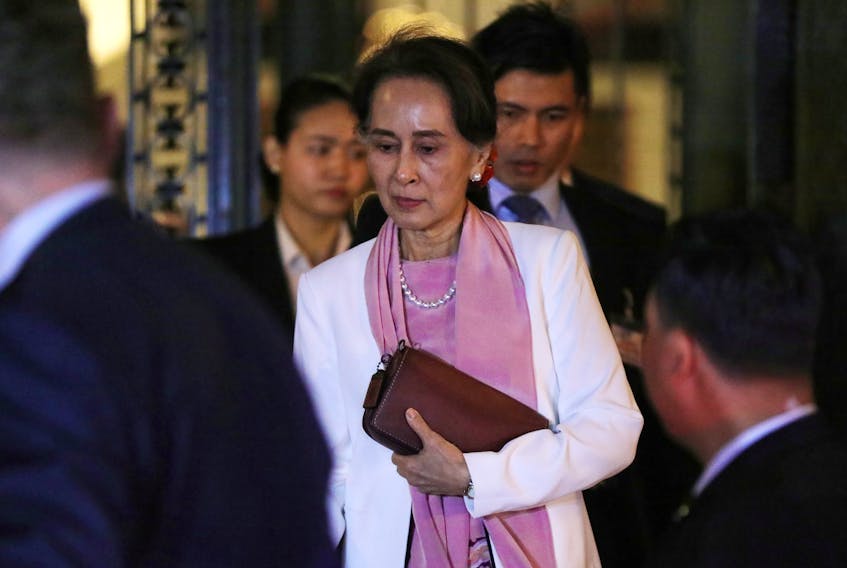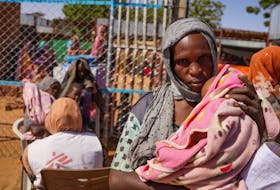By Stephanie van den Berg
THE HAGUE (Reuters) - Myanmar leader Aung San Suu Kyi was due to leave the Netherlands on Friday after defending her country against accusations of genocide during three days of hearings at the International Court of Justice.
WHERE DO THE PROCEEDINGS STAND NOW?
The west African country of Gambia filed a case in November, alleging Myanmar was committing "an ongoing genocide" against its minority Muslim Rohingya population.
As a first step, Gambia asked the court to order emergency measures to protect the Rohingya and keep the conflict from getting worse.
These are meant as a kind of restraining order while the 17-judge panel looks at the full case on its merits, which usually takes several years to complete.
The court said it would rule on the request as soon as possible, but did not set a specific date. A ruling is expected within weeks.
These hearings are expected to have been the first in a long process. The genocide case against Bosnian Serbs in Srebrenica in 1995 took almost 15 years to complete.
If the court finds in its rulings on provisional measures it has the jurisdiction, the case will move forward at the ornate Peace Palace in The Hague - even if the judges decide against emergency measures.
Myanmar would then get another chance to argue the court has no legal grounds to look at Gambia's claim and to file a so-called preliminary objection - which can only touch on issues of jurisdiction.
If the court rejects that objection, the judges could finally look at the case in another round of public hearings.
It is not unusual for several years to pass between the initial claim and the actual hearing of the case on its merits.
WHAT IS GAMBIA'S CASE?
Gambia says that as a signatory to the 1948 Genocide Convention it has the obligation to prevent and punish genocide, no matter where it takes place.
In court, it relied heavily on U.N. reports of killings, mass rapes and widespread arson on Rohingya villages, carried out with what the researchers called "genocidal intent".
The protective measures it demands include ordering Myanmar to preserve evidence of alleged atrocities and to allow access to U.N. investigators.
HOW HAS MYANMAR RESPONDED?
Suu Kyi acknowledged there may have been some war crimes or crimes against humanity, but insisted none of these rose to the level of genocide - for which the specific intent to destroy a group has to be proven.
She also repeated Myanmar's official line that the crackdown on the Rohingya was a legitimate military operation, not aimed at civilians but at armed Muslim militants in Rakhine state.
A lawyer for Myanmar also told judges there were simply not enough deaths to amount to genocide.
Suu Kyi called on the judges to dismiss the accusation and said her country's own justice system should be given the chance to work first.
(Reporting by Stephanie van den Berg; editing by Bart Meijer and Nick Macfie)









